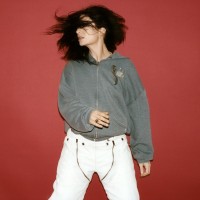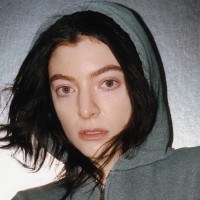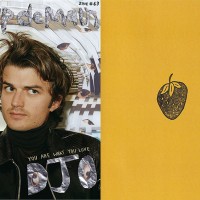Introducing: J. Maya and her upcoming 'Poectic Licence' EP.
Introducing: J. Maya and her upcoming 'Poectic Licence' EP.
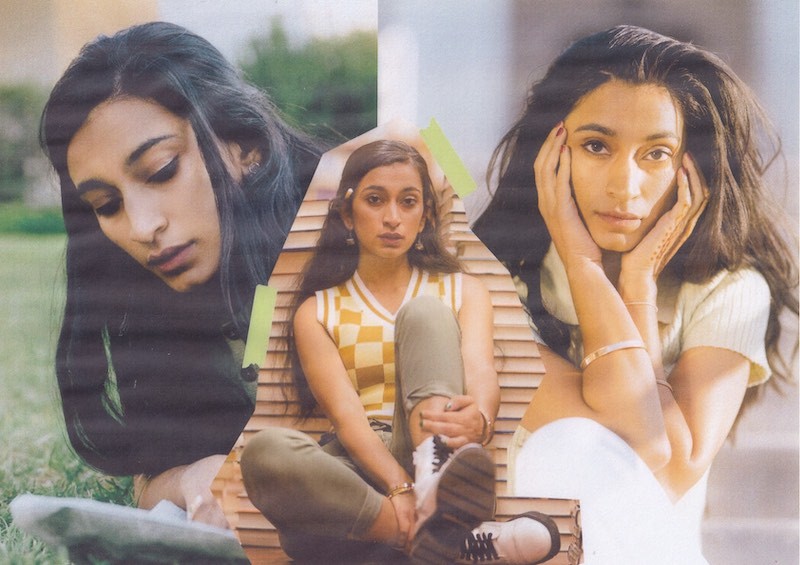
"What's a nine-letter word for how you feel? / There's a 'U' and 'I' together, but it's missing a few letters," ponders J. Maya on her track 'Sunday Crossword' from her upcoming project, 'Poectic Licence'. On what she can tell us about the project so far, Maya shares: "It tells the story of how I got here. Growing up with my head in the clouds, obsessed with fantasies, and what it's been like to make it in the real world and create a life that I am actually proud of."
Maya has found herself calling Los Angeles home these past few years when she moved during the height of the pandemic to focus on what she has always been passionate about - being a musician. In January of last year, her track 'Achilles Heel' started gaining traction with that being the push to pack up and move out to LA. Her new project 'Poectic Licence' is aptly named with Maya making the worlds she creates entirely her own: "In a way I'm taking poetic license in these touch points of the Western canon to talk about the experience of being a second generation immigrant, who grew up very nerdy and an outsider."
We chatted to J. Maya about truly knowing someone, her favourite book this year, and creating a song from a concept...
COUP DE MAIN: You recently released 'Sunday Crossword' which was about the experience of having a crush on someone who is playing games with you - do you think games in a relationship can ever lead to somewhere meaningful? Or are they all doomed?
J. MAYA: Great question! Oh my gosh, I have to think back to the experience that I write about in 'Sunday Crossword'... I'm someone who has really struggled to be very open and honest with people in my life. That's what a lot of 'Poetic License' which is my upcoming project is about - what it means to take courage and start to write the next chapter of your own life. That's been for my career, for how I interact with people, which is what I talk about in 'Machine Learning' as well, but especially in my romantic relationships, I've never valued myself as much as I should really and I'm always catering to the other person. For me, I would say to that question, games are not great. I can see how easy it is to fall into the pattern of: "Oh my gosh, what does this person think of me? Am I playing the game in the way that they want me to?" In 'Sunday Crossword' I allude to it in the second verse, "Give me a pen, and I can pretend that we're writing our future instead of playing all these games," that is the perspective that I started to take in my life with relationships and just the world in general. Just be honest, be yourself, and everything will follow after.
CDM: You've also said that 'Sunday Crossword' touches on the exhilaration of attempting to untangle someone’s feelings - do you think we can ever truly know a person in their entirety?
J. MAYA: I actually fully believe: no. I think about it all the time. I've always been very curious about answering this question for myself because ever since I was a kid, I've always felt a little bit of distance between myself and other people. I don't know where this comes from, it can be my social anxiety, my compulsive people-pleasing habits, or maybe it comes from being someone who really thrived off of academic validation growing up and then started to seek external validation as a means of sustenance after. For whatever reason, I've always felt like I'm on the outside and studying people's behaviours and trying to understand what it means to be a "real person". I feel like more people do that than they let on. Almost all of us are really experiencing socialisation and life through this filter of our own experiences and for that reason, I don't think it's possible to really know anyone to their core. Our experiences are so individual and unique to us and our inner voices are so unique to us that you will never really understand how people see the world around them. Every TikTok and social media post where people are saying, "Oh my gosh, I want a relationship!" What it boils down to is: we all want to be seen and known by other people but the sooner you realise that's an unrealistic expectation to place on someone, and the only person who will ever really see or know you is yourself, the sooner you'll actually encounter healthier relationships.
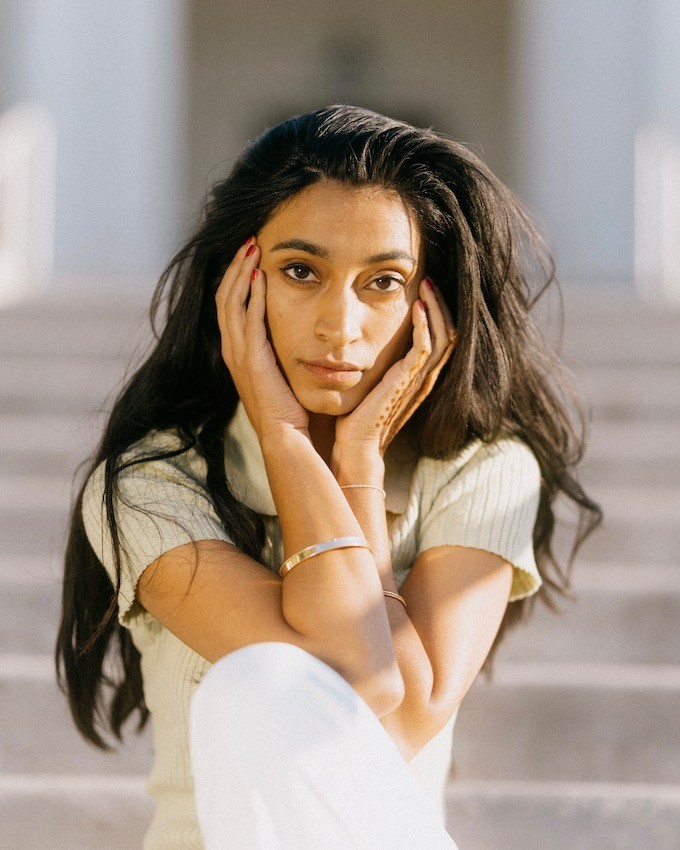
CDM: Is there a lyric that you're most proud of writing?
J. MAYA: Oh my gosh, can I say a lyric off of an unreleased song? Is that allowed?
CDM: Yes!
J. MAYA: Oh my gosh, okay! I will give a lyric off of an upcoming song that I have on the project called 'Three Spectres', which I wrote about my struggles with mental health. The way that I imagined that song is I anthropomorphized the past, the present, and the future. Those are the three Spectres that I talked about in the song. And in the pre of that song I write: "The past is a presence, the future is pretend, and the present is a pastor trying to make it all make sense." If you know me, you know that I have a proclivity for wordplay and puns so I think that's a pretty punny lyric but what I really like about it is that it humanises and personalises the anxieties that a lot of us struggle with. It makes them feel tangible and tactile.
CDM: In 'Machine Learning' you pose the question: 'Is living a performance?' Have you found the answer to this question yet?
J. MAYA: Yes! The answer is yes it can be! For most of us, it's when we're growing up - I think that's what growing up is. It's figuring out what parts of your life are a performance and figuring out what parts of your life are real. The entire motivation for wanting to write this body of work was me coming to terms with the fact that I've felt like my entire life has been a performance but also in the decisions that I was making "for myself". Choosing music was the first big decision I've ever made for myself, I was on a completely different path. I was supposed to go to law school, which was a decision I thought I was making for myself, but it was really one that was made for me by my community and my family. This project is about the stress and anxieties that happen when you find out the parts of your life that aren't a performance and you prioritise that. For me, music has never been a performance. My music is the one place I can feel vulnerable and authentic. I'm really building a connection with my listeners and it's been important to me to prioritise that above everything else in my life. So I think the answer is: absolutely. As you grow up, you begin to realise that it's just not worth it to perform all the time and you find the people in your life that make you feel safe and real and you find the things in your life that you're passionate about. You prioritise that at the expense of the things that were fake.
CDM: Who or what would you say are your biggest influences and inspirations music-wise?
J. MAYA: Sonically, I'm a huge fan of the big pop girls - Ariana Grande, Taylor Swift, Katy Perry, Beyoncé. Thematically, a genre of music I've always found myself drawn to is musical theatre. I just love musical theatre's ability to tell a story so concretely through music and in that vein, a songwriting duo I've taken inspiration from my entire life is Pasek and Paul with the 'Dear Evan Hansen' soundtrack - it's my favourite musical. Beyond musical theatre and pop, real influences for me in terms of the music that I studied and learned growing up are jazz and Indian classical music. I love the modulation that vocalists use in those two genres and I really tried to incorporate them into my music as well.
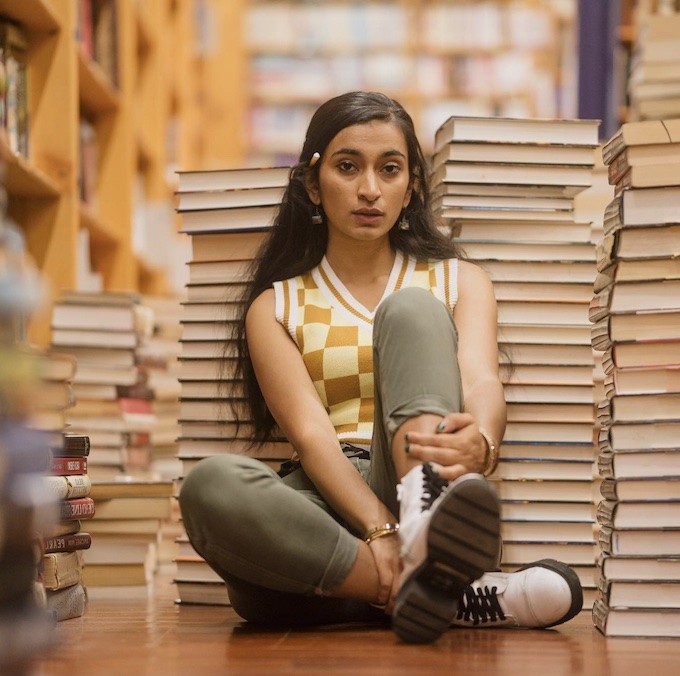
CDM: What does your writing process tend to look like? Do you start from melody or lyrics?
J. MAYA: For me, it's actually concepts. I decide early on what shape I want the song to take, for example, with 'Machine Learning' I decided I wanted to write a song from the perspective of a robot that literally sounds like a robot is singing it, because that's how I feel in social situations. With 'Sunday Crossword' I decided I wanted to write a song where the lyrics form a crossword puzzle. My favourite songs that I've written are songs where the concept drives everything. From there, it actually happens simultaneously. I find a chord structure I really like and I'm a big fan of letting the lyrics flow first, and then going back with the fine-toothed comb, and picking the lyrics that I think really stand out workshopping them.
CDM: In 'Ms. Protagonist' you touch on the fear of growing older - what do you think it is about aging and maturing that has such a large amount of people so fearful of it?
J. MAYA: When people describe the fear of ageing, a big part of that is the fear of things no longer feeling magical anymore. This idea that when you're a kid, you're seeing things through these rose-coloured glasses, and everything is just so fun and special and new and fresh. As you grow up, the real world pokes its ugly head into your fantasy, and you begin to realise that life is nothing like you imagined it would be as a kid - I think that's what people associate with the fear of ageing. But I will also say a big fear of ageing that I have is specific to being a young female creative. Women in particular feel like they often have an expiration date for being creative or interesting. I think that's been a large part of my anxiety - feeling like I have a certain amount of time to do what I need to do with my life, and then no one will be interested anymore. I've had to unlearn that, because that's actually detrimental to the creative process and I've begun to realise that if you're authentic, and if you're building something real and special, no one cares! It can really just be about the art and the music! That's been a great lesson that I've learned in the last few years.
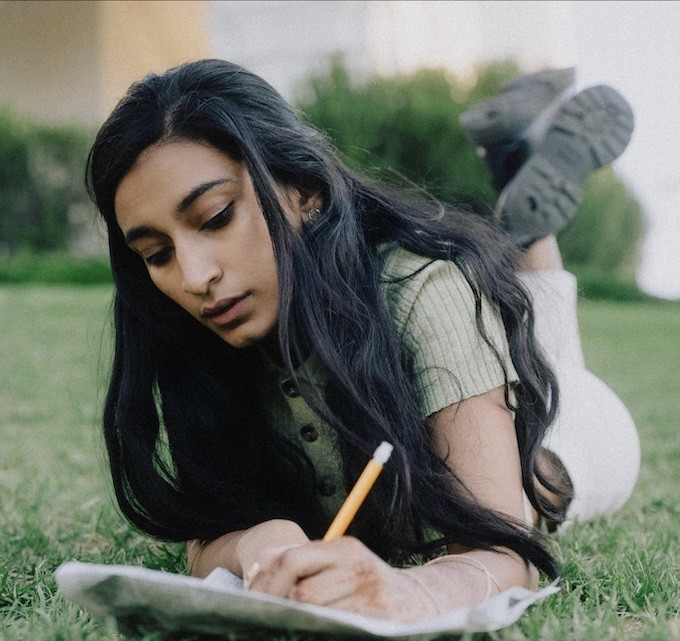
CDM: What does a perfect day look like to you?
J. MAYA: I'm gonna give it to you item by item. The first wake up, stretch out in bed, you put on some comfy clothes, you go for a walk to get coffee, which is a lyric from 'Sunday Crossword' actually I'm realising! You walk to get coffee with a friend, or someone that you love very dearly, you talk. After you get the coffee, you look up the nearest bookstore, you go to the bookstore, you peruse the bookstore a little bit, you pick out some books that you love. You spend a good chunk of time there though, because you know, you need to make the right decision. You pick up a book or two, you go to a nice Indian restaurant, you eat some Indian food, and then you just find a beautiful spot in a park and read the books that you've gotten until it gets dark. You get some Mexican food and boba and you come home and you watch rom-coms with popcorn and until it's time to go sleep. That sounds like a very nice day!
CDM: What is the best book you've read this year?
J. MAYA: This will be an easy answer for me - 'Circe' by Madeline Miller. Everyone and their mother was telling me to read this book last year, I don't know why I resisted for so long. I'm a huge fan of Madeline Miller! 'The Song Of Achilles' as a couple of my dedicated listeners might know inspired in part, my song 'Achilles Heel', because I just loved it so much. I think the reason I wanted to wait so long is because I knew that it would change my life. I was waiting for the right moment. I read it early this year and it just honestly changed my worldview of writing, of art, and also of women! That book talks about Circe's story in a very innovative way. I think Circe is pigeonholed in mythology to a very certain role. Reading that book inspired in part, a song I wrote called 'Golden Age', which is all about the untold stories of women throughout history and literature. It just really emboldened me and and made me feel more passionate than I already was, which sounds difficult, about just telling the stories of women who've been silenced about history. So I love 'Circe' by Madeline Miller and I can't wait to read her 'Persephone' book next year. It's like number one on my list of hotly anticipated books.
CDM: "Cause the pages built a temporary shield... And for a while it all just seemed so real," you sing in your track 'Library Card' - do you think the world of escapism can ever be entirely healthy? Or is it always used to escape problems and issues we're facing in our real lives?
J. MAYA: I used to be more embarrassed and ashamed of how much I used books and daydreaming to escape my real life. In college and high school, if I had a free moment, I would sit down and just close my eyes and literally escape to a fictional universe. I know now that that's common - at the time I was like, 'What is wrong with me? There's something not right!' Now I'm realising that so many people use escapism and it's not something at all to feel bad about. It's a beautiful thing to have a healthy imagination and to imagine different worlds. The one downside is that your expectations for life will become very high and you have to be prepared when you come out of your fantasy - real life will not match up to it. But I've learned to engage with it in a healthy way and it's a beautiful remnant of my childhood that I've kept alive in my life.
CDM: You've told us some unreleased lyrics... what else can you share with us about your upcoming music?
J. MAYA: This project 'Poetic License' is a body of work that I'm incredibly proud of. It tells the story of how I got here. Growing up with my head in the clouds, obsessed with fantasies, and what it's been like to make it in the real world and create a life that I am actually proud of. It hasn't been without obstacle and it has taken a lot of finding myself and discovering courage that I didn't know existed in me. I hope that it's a journey that is relatable to people who listen to the project. I called it 'Poetic License' for two main reasons. The first is that for people who listen to my music, it's no secret that I often reference touch points of the Western canon in my music, whether that's literature or mythology, or just generally stories that make up Western literature. It dawned on me a couple of months back how interesting it is that I'm doing that to tell stories from my life. In a way I'm taking poetic licence in these touch points of the Western canon to talk about the experience of being a second generation immigrant, who grew up very nerdy and an outsider. I just thought that that was an interesting dichotomy that I wanted to play on with the title of the project. Also in a sense, the reason it's called 'Poetic License' is because this is a story of how I've learned how to take poetic licence with my own life. I just really hope that the songs inspire people to do the same with their lives. That's the dream of an artist to find connection in that way with their listeners. I'm just so excited for people to hear this project. It's a huge part of me. I couldn't be more vulnerable and I'm really proud of it and I'm excited to hear what everyone thinks of it. I hope people like it.
Watch a lyric video for 'Machine Learning' below...










